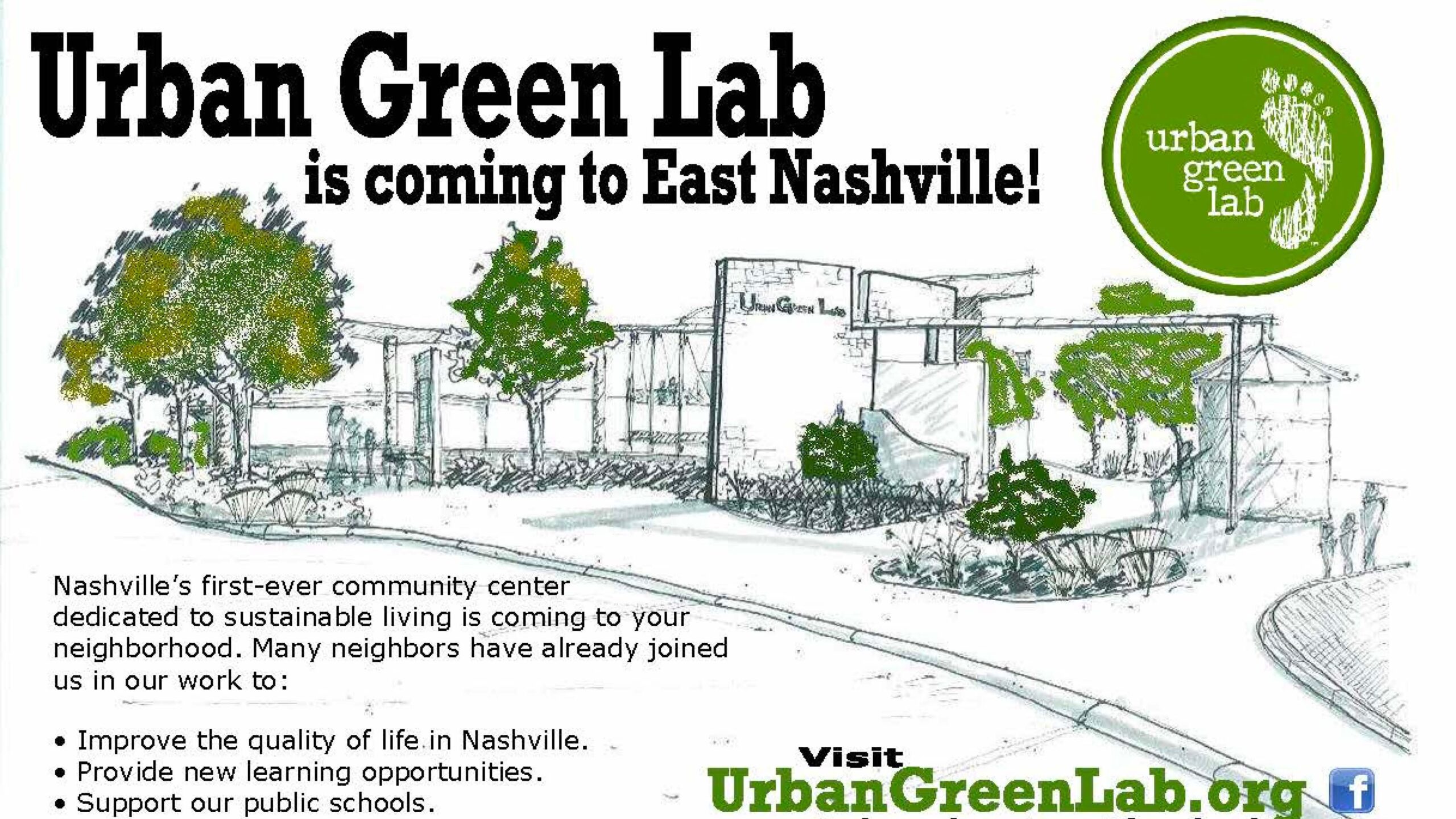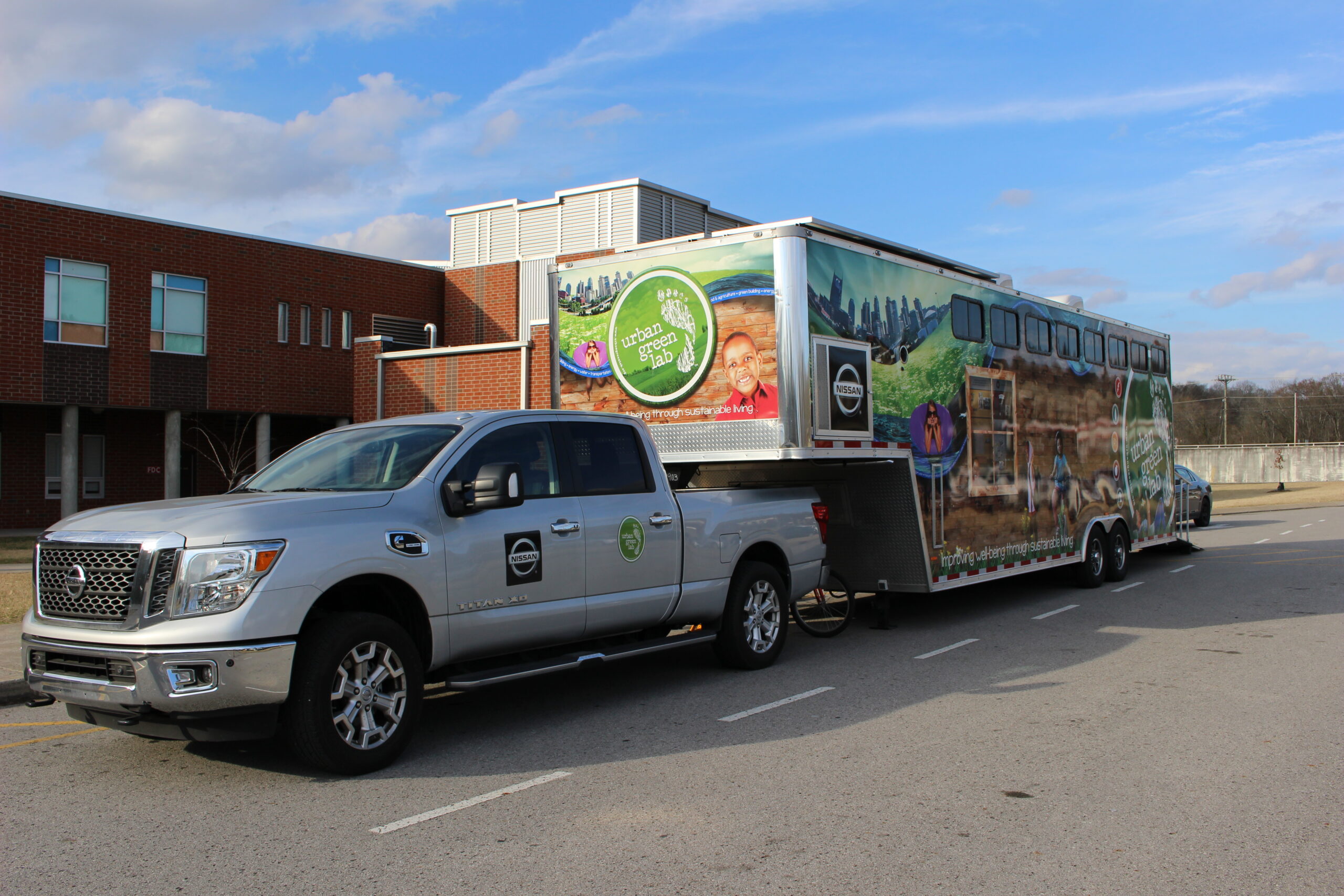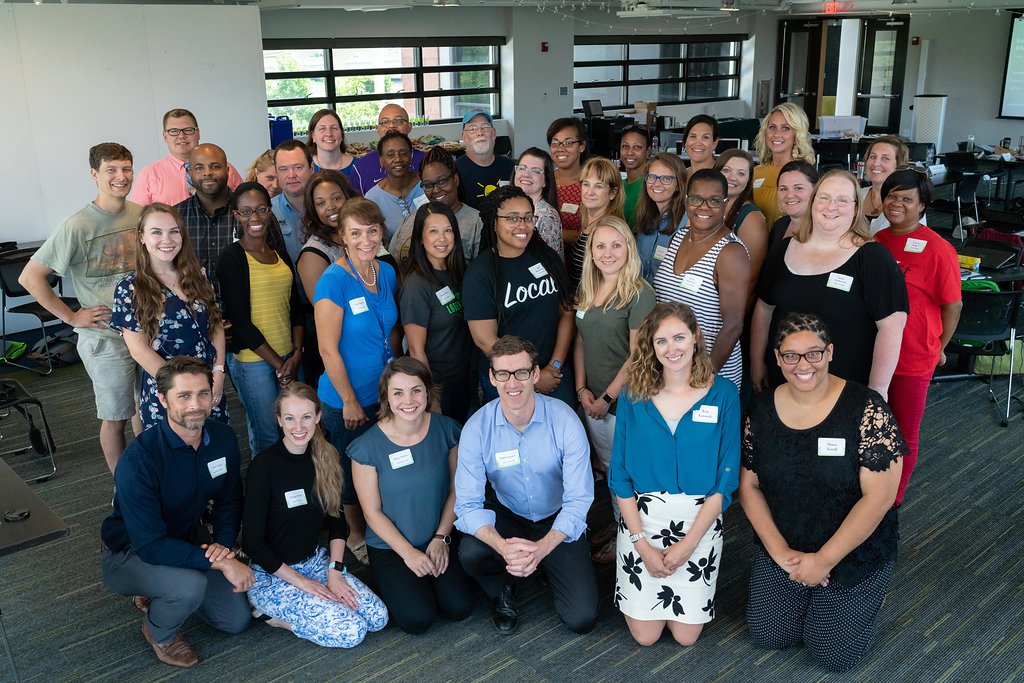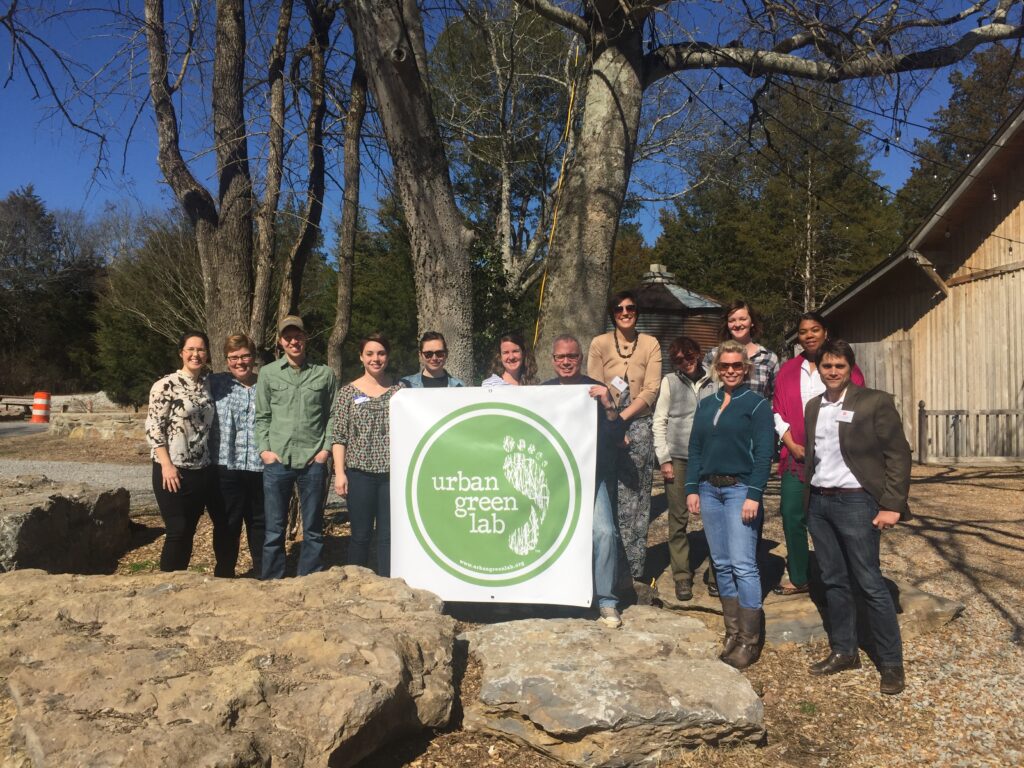Would you believe me if I told you it’s been 15 years since 2009? The math adds up, but it’s hard to think about time passing so quickly.
Why is 2009 significant? It is the year that Urban Green Lab was founded to bring sustainability education to Nashville communities. Over the past 15 years, our commitment to sustainability education has remained the same, but how it is accomplished has adapted over time.
Our History
In 2009, Dan Heller, Heather Langford, and Tracy Puett, three Nashville residents, imagined an urban lab for Nashville to learn about sustainability. After months of vision-casting, Urban Green Lab was created as a non-profit organization.
At the start of Urban Green Lab, the organization consisted of a working board dedicated to creating an educational center in East Nashville that would inspire Nashvillians to think more sustainably.

UGL hired its first staff member, Jennifer Westerholm, in 2013 to serve as executive director. Our programming included working directly in schools to teach hands-on sustainability lessons. We also provided workshops to the community on various topics, from gardening to green building.
After years of planning to build an educational center in East Nashville, we began to wrestle with a question: “How do we reach people where they are and ensure we’re providing education to all of Nashville and not just one community?” Our answer was to take our education on the road, literally. In 2016, we launched the Urban Green Lab Mobile Lab, and Todd Lawrence was appointed executive director.
We created Urban Green Lab’s Mobile Lab to bring sustainability education to Nashville communities rather than asking them to come to us. The Mobile Lab – a custom-built classroom on wheels pulled by a Nissan Titan truck donated by the company – was an experiential learning opportunity for Nashville residents to step into the world of sustainability. It allowed us to bring robust educational opportunities to schools and community events around town.

After a few years of bringing sustainability education to Nashville through the Mobile Lab, we noticed a trend: It offered an excellent introduction to sustainability. However, we soon realized there was an opportunity to create systemic behavior change if we created lasting educational relationships instead of one-time educational opportunities. This reckoning with how to bring about the kind of systemic change needed to create a more sustainable Nashville brought us to the Urban Green Lab you know today.
We still bring sustainability education to communities, but we are focused on long-term engagement with those communities to create enduring change for a better Nashville.
Now, we educate in places where culture is formed - classrooms, households, and workplaces - through programs that invite communities to learn the basics of sustainability and how to apply a sustainability lens to every part of their lives and share it with others. We focus on training the trainer or teacher to create intergenerational impacts that continue after our programming has ended for the day.
Learn more about our programs and special initiatives here.

Reflecting on a Changing Nashville
As we reflect on UGL’s history, we’d be remiss not to acknowledge how much our city and our city’s relationship with sustainability has changed over the last 15 years. We asked our founders and some original Urban Green Lab staff, board members, and supporters to reflect on how Nashville has changed and their hopes for Nashville in the next 15 years. Here are some of their reflections:
Dan Heller, co-founder
“When Urban Green Lab was founded in 2009, Karl Dean was Mayor. He had a vision of making Nashville one of the ‘greenest cities in the south’ and backed it up by supporting projects like Urban Green Lab and spearheading a variety of new Metro programs. Nashville has always had a strong bent toward conservation and public spaces for parks and nature, but we're now seeing more investment from government and big corporations in programming, policy, and services that support more sustainable practices and infrastructure. Of course, more is better. It's a good direction. I am glad to see Mayor O'Connell continue supporting these trends and hopefully setting the bar even higher. I hope Dean's goal to make Nashville ‘the greenest city in the south’ accelerates and materializes, even morphing into a more restorative vision.”
Jennifer Westerholm, previous executive director
“As Nashville has become a larger, more cosmopolitan city, expectations around environmental sustainability have increased. The number of impacts of nonprofit, public, and private sector efforts to reduce waste and improve livability has grown in this time. I want to see a widespread ‘culture of sustainability’ in Nashville, where green practices are expected and celebrated.”
The consensus is that Nashville would be a city that prioritizes and celebrates true sustainability. We strive for a city where every decision would consider how it impacts our people, planet, and prosperity.
A Vision for the Next 15 Years
How does UGL fit into that vision for Nashville in the years to come?
What we want to do next is help Nashville reach its broader sustainability goals, which include reducing greenhouse gas emissions by 80 percent by the year 2050 and cutting food waste in half from 2017 levels by 2030.
That will take mass community education in all the places where Nashvillians learn, work, and live. First, we need to ensure that every space, whether a classroom, household, or workplace, has an education leader who can share simple solutions for living sustainably and refer local services, like recycling or composting programs. Second, every space needs an educational plan that fits its needs and inspires a new generation of sustainability champions. Third, those spaces must come together year-round to share what they’ve learned, exchange best practices, and partner on efforts that get us closer to the goal.
Most importantly, we need to hear from the voices of those suffering most from the effects of a changing climate here in Nashville. Who are those people experiencing the worst effects of extreme heat, wind, and flooding? More and more, the conversation will not just be about how we prevent unsustainable behaviors but also about adapting to a new environment and landscape that is tougher to endure, especially for marginalized or vulnerable communities on the frontlines. The bottom line is that all of us need to be part of the solution, and to us, that always begins with education.
Thank you to everyone who has supported our work. We wouldn’t be here without your generosity, time, and passion. We’re optimistic about the next 15 years of Urban Green Lab, and we hope you will join us in our mission to teach communities how to live sustainably.

Todd Lawrence is executive director for Urban Green Lab, a nonprofit organization based in Nashville, Tennessee, which teaches communities how to live sustainable, healthy lives. More…
